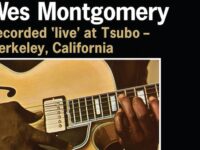 by Nick DeRiso
by Nick DeRiso
Though Jimmy Smith is the principal voice of the Hammond B-3 in jazz, finding an entry point in his long discography can be difficult.
Some might argue for 1956’s “At the Organ,” featuring Cedar Walton, Pepper Adams and Chick Corea. For me, though, that one doesn’t pop with enough grease.
Start with “Back at the Chicken Shack.” Perfectly named, even better played, this 1960 release is one of those dimly lit, back-alley Blue Note classics of singular brilliance.
Primarily, that’s because Smith had, by then, completely inhabited his spot as the blues cat who played bebop.
 Smith, see, was among the first to understand the importance of a foot in the organ style. A pioneer of the bassless trio, since he had such low-end dexterity, he also possessed a rare two-handed artistry — having become equally adept at lefty chordal accompaniment as with solo lines on the right.
Smith, see, was among the first to understand the importance of a foot in the organ style. A pioneer of the bassless trio, since he had such low-end dexterity, he also possessed a rare two-handed artistry — having become equally adept at lefty chordal accompaniment as with solo lines on the right.
Throughout, everything had a deep soul — even though, more often than not, the tunes on “Chicken Shack” were also up-tempo. It was great, great party music.
Thing is, in addition to all of this latent R&B street cred, Smith was clearly a fan of jazz’s unique syncopations (so, notably, was labelmate Lou Donaldson) — meaning he moved freely among both the roots and bebop crowds.
“Chicken Shack” was, for instance, also one of the first albums to properly feature tenorman Stanley Turrentine. The great Kenny Burrell is on guitar.
Full disclosure: I found “Chicken Shack” later, traveling backward in the Smith catalog, after “The Dynamic Duo.”
 “Duo,” released in 1966 on Verve and featuring guitarist Wes Montgomery, was just the second jazz record I ever heard (after Julian “Cannonball” Adderley’s “At the Club”). My father and I were into what was then called soul jazz — and this record was one of the touchstones of our groove thing. That’s why I still have “Duo” on vinyl — both the copy we listened to, the one with my dad’s name carefully written on it by my mother … and the replacement copy for casual listening — then the (never used, anymore) cassette tape, and now the (nearly worn out) compact disc.
“Duo,” released in 1966 on Verve and featuring guitarist Wes Montgomery, was just the second jazz record I ever heard (after Julian “Cannonball” Adderley’s “At the Club”). My father and I were into what was then called soul jazz — and this record was one of the touchstones of our groove thing. That’s why I still have “Duo” on vinyl — both the copy we listened to, the one with my dad’s name carefully written on it by my mother … and the replacement copy for casual listening — then the (never used, anymore) cassette tape, and now the (nearly worn out) compact disc.
This 1966 Verve release blows a gaping hole in the popular concept, really both for Smith and Montgomery, that they devolved into genre players — former jazz stars now in a loveless courtship with pop music.
Many of their recordings, it’s true, suffered with too many strings, and a penchant for quickly dated songs of their day. But that doesn’t rule out the odd shimmering delight.
The sharp-edged “Duo” is one of them — brassy and outsized, with orchestration by Oliver Nelson, and highlighted by a tough version of “Down By the Riverside.” It was as muscular and distinctive as anything either was doing separately.
The terrific backing band includes Grady Tate and Clark Terry, though Montgomery — perhaps predictably — very nearly steals the show. A favorite line from the original liner notes, concerning Wes, was a reference to his “amazing, blazing guitar phrasing.”
They find an emotional telepathy on the horns-free “James and Wes” that completes the circle for fans of Smith’s down-home vernacular.
It’s a romp in the style of Smith’s earlier triumphs on “Chicken Shack,” but also an advancement of the sound in that Montgomery’s rounder, fuller improvisations push Smith into more complex iterations of the bluesy runs he’d become rightly famous for.
Smith definitively shows across these two recordings that he could adapt his thunderously emotional sound into both the small-group and big-band contexts. They are legend-making, awfully fun, and essential.
- Nick DeRiso’s Best of 2015 (Rock + Pop): Death Cab for Cutie, Joe Jackson, Toto + Others - January 18, 2016
- Nick DeRiso’s Best of 2015 (Blues, Jazz + R&B): Boz Scaggs, Gavin Harrison, Alabama Shakes - January 10, 2016
- Nick DeRiso’s Best of 2015 (Reissues + Live): John Oates, Led Zeppelin, Yes, Faces + others - January 7, 2016




What a great opportunity it must have been for these 2 grats to play together. This is pure joy to listen to.